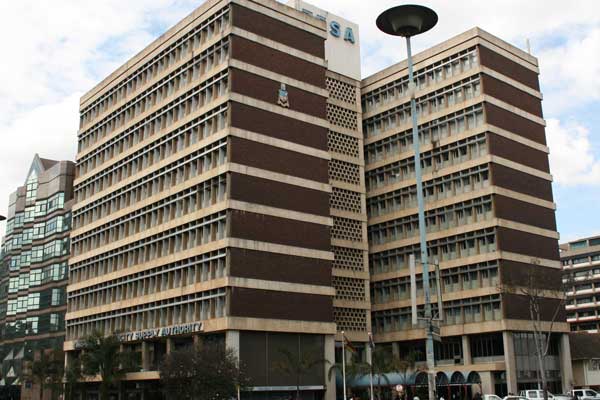
As it increasingly becomesclear that climate change has become a reality in Zimbabwe, many are struggling to come to terms with its effects — especially the blazing heat that now characterises most days. But for people like Tundondeghe Chiraya and her family, the scorching heat spells an uninterrupted 24/7 supply of electricity.
BY CHIPO MASARA
Having recently moved into their new house built on a stand acquired in the new settlement of Budiriro 5B Extension — neighbouring thousands of houses built by banking institution CABS under the Budiriro Housing Scheme — life would have been most unpleasant without any source of power supply, as Zesa-powered electricity is yet to reach the area because getting connected to the utility’s power lines is proving to be a cumbersome process filled with hurdles.
But power problems are slowly becoming a thing of the past as people in the area have been left with no choice but to turn to solar power.
While the investment in a solar panel and battery was initially made sulkily, the Chirayas were soon to realise turning to solar energy was one of the best decisions they could have ever made. While it might have taken sacrifice to fund the initial setting up of the solar connection in their home, the return on investment that immediately followed has left them without any hint of regret.
“I have to admit that before we connected to solar power, I wished Zesa would hasten to connect the area so we would avoid the costs, but I have since changed my mind,” said Chiraya with a beaming smile.
“With our solar panel and battery, we are able to power lighting for the whole house, the entertainment set [television, home theatre system, DStv] and to charge all our cellphones. We use gas to cook and we are planning to invest in another battery so we can also power the fridge and other electrical gadgets.
- Chamisa under fire over US$120K donation
- Mavhunga puts DeMbare into Chibuku quarterfinals
- Pension funds bet on Cabora Bassa oilfields
- Councils defy govt fire tender directive
Keep Reading
“The best part is that since we installed solar energy, there has not been a day we have gone without power supply. My kids are happy too; they get to do their homework uninterrupted and the TV can be switched on all day without us worrying about any extra costs. All we need is the sun, but even without as much sun, the battery still manages to charge.”
For Chiraya, the best part about using solar energy is not having to constantly worry about electricity bills, or the power cuts that have characterised Zimbabwe for years. High electricity bills and going without power and fumbling in the dark trying to locate a candle, are now things of the past for her family.
Back in the day — when Zimbabwe’s economy was still strong and Zesa could be counted on to provide an adequate power supply — solar energy was viewed by many as a preserve for those in very remote areas. It seemed solar panels had been manufactured specifically for marginalised rural areas located far from civilisation. But the crumbling of the economy and the subsequent power shortages that saw Zimbabwe having to import electricity from other countries was, however, to see a shift in the way people perceived solar energy. For the first time, solar energy became an appealing alternative even for the urban folk.
That for the first time, the Kariba Dam — that had for years been a major source of power generation in Zimbabwe — is experiencing the lowest water levels and has been generating less and less electricity, might have also been the wake-up call many needed to eventually decide to look to solar as a real option. This is especially so for those who are moving into houses in newly established suburbs that have spouted all over, but are not yet connected to Zesa’s power supply such areas include, parts of Damofalls, Southlea Park, Caledonia and Glaudina, among many other areas.
Today, the only regret that many that were forced by the power problems to resort to solar energy have, is that they did not realise solar power’s benefits much sooner. Those that are harnessing it couldn’t be happier as it has proven to be the most reliable source of power they can access. As long as the sun is still shining, they will never have to worry about running out of energy — and Zimbabwe has a lot of sunshine, the intensity of which may only get worse as the full effects of climate change continue to be felt. But even when there are a lot of clouds, solar energy continues to replenish itself.
Turning to solar does not only present a win-win situation for those that harness the energy, which comes in abundance; it is a great stride in the country’s push towards green energy, as the traditional method of getting energy harms the environment because fossil fuels have been proven to highly pollute the areas we live in. Solar energy does not contaminate the homes or anything outdoors. If the whole of Zimbabwe goes solar, it would be a monumental achievement along the way to going green.
The environment is enabling for Zimbabwe to become a solar nation!
lFor feedback, email at [email protected]












